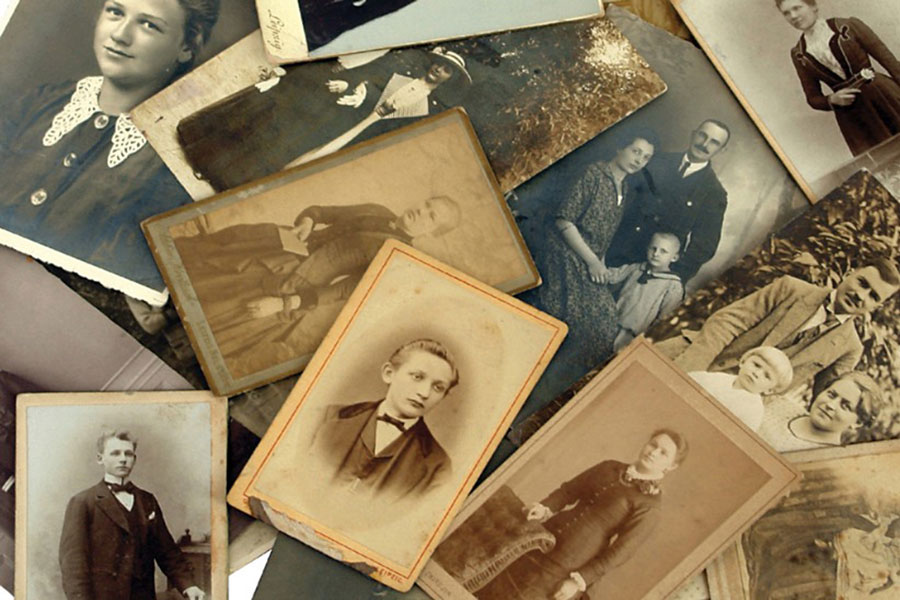Begin Reconstructing Your Family Stories

Ready to start working on your family history? You’re not alone! Interest in genealogy has grown enormously in the age of online research and DNA testing. Several news outlets claim that genealogy is the second most popular hobby in the United States, after gardening.
Where to Start?
Genealogy begins at home. Begin by gathering any family records you might have. Ask the older members of your family to tell you about their parents and grandparents and any family stories about where they came from. Put together a collection of names, dates, places, and stories that will form the basis for future research.
As soon as you begin gathering information, you’ll realize that you’ll need an organization system for all the information you collect. Organize Your Genealogy: Strategies and Solutions for Every Researcher, by Drew Smith, can help keep you from being overwhelmed.
Beginning to Research
Once you’ve gathered as many facts about your family as you can, you’re ready to begin verifying those facts and building on them. But first it’s a good idea to get some education on how genealogical research is done.
Resources for Beginners
- A book that can help you learn to trace your roots online is The Everything Guide to Online Genealogy by Kimberly Powell
- Back to the Basics: Genealogy 101 is a 30-minute video with Crista Cowan on Ancestry’s YouTube channel
Some Records are Free, Some Cost Money
The two websites with the largest collections of records are Ancestry and FamilySearch. Ancestry (ancestry.com) offers their huge collection of records free to anyone who sets up a free account with them. FamilySearch (familysearch.org) is a subscription site, charging a fee for use of the site.
Beginning with FamilySearch is a good strategy. You can get hands-on experience learning to do research without spending money at this point.
Once you’re ready to branch out, it’s likely that your local library has a subscription to Ancestry’s Library Edition that you can use.
Genealogy Education
It’s easy to make mistakes as a new genealogy researcher, so it’s important to take time to learn how to do research correctly. You’ll also discover, as you get more deeply into genealogy, that there’s always something new to learn.
Many opportunities exist for genealogical education, but one of the best is webinars, which are online classes that usually last an hour and are free to watch. These organizations below offer webinars on a variety of genealogical topics:
- Illinois State Genealogical Society
- Ontario (Canada) Genealogical Society
- Georgia Genealogical Society
- Southern California Genealogical Society
- Minnesota Genealogical Society
- Legacy Family Tree Webinars
A Word about DNA Testing
DNA is a powerful new tool in the genealogist’s toolbox, but it’s only one of many. DNA can be used to validate the “paper trail” assembled by traditional genealogical research, it can point genealogists in the direction of family connections that need to be researched, and it is especially helpful in allowing adoptees to connect with their birth parents.
Sometimes I hear people say, “My DNA results prove I’m 24 percent German,” or “That DNA test was worthless. I know I have more Scandinavian than that.” It’s important to keep in mind that ethnicity estimates are just that: estimates. Testing companies have analyzed DNA from a sample of people who live in different areas of the world today and use that analysis when they’re comparing our DNA for ethnicity results. The more people who test, the more accurate the estimates will be, but that’s off in the future.
The other thing to keep in mind when looking at your DNA ethnicity estimate is that we only inherit half of each of our parents’ DNA, and they only inherited half of their parents’ DNA, and so on back through the generations. Your full siblings may have different ethnicity percentages because they have inherited different DNA from your parents than you did.
Finally, one of the most useful aspects of DNA testing is looking at your matches. DNA can connect you to relatives you’ve never met, and those relatives may have family stories to share with you.
If you want to know more about DNA and genealogy, an excellent source of information is The Family Tree Guide to DNA Testing and Genetic Genealogy by Blaine T. Bettinger.
About Our Guest Author
Annette Burke Lyttle loves helping people uncover and share their family stories. As the owner of Heritage Detective, LLC, she offers professional genealogy and family history research, education, and writing services. She is a member of the Association of Professional Genealogists and the Genealogical Speakers Guild, as well as a number of national, state, and local societies. Her genealogical education has included the Salt Lake Institute of Genealogy, the Genealogical Research Institute of Pittsburgh, the ProGen Study Group, and the National Genealogical Society Quarterly Study Group.
Savant is excited to host Annette on June 14 in Rockford. Using the life of William Crout, pioneer, civil war veteran, rancher, and local character, she’ll teach how it is possible to reconstruct life stories using genealogical resources available online.
